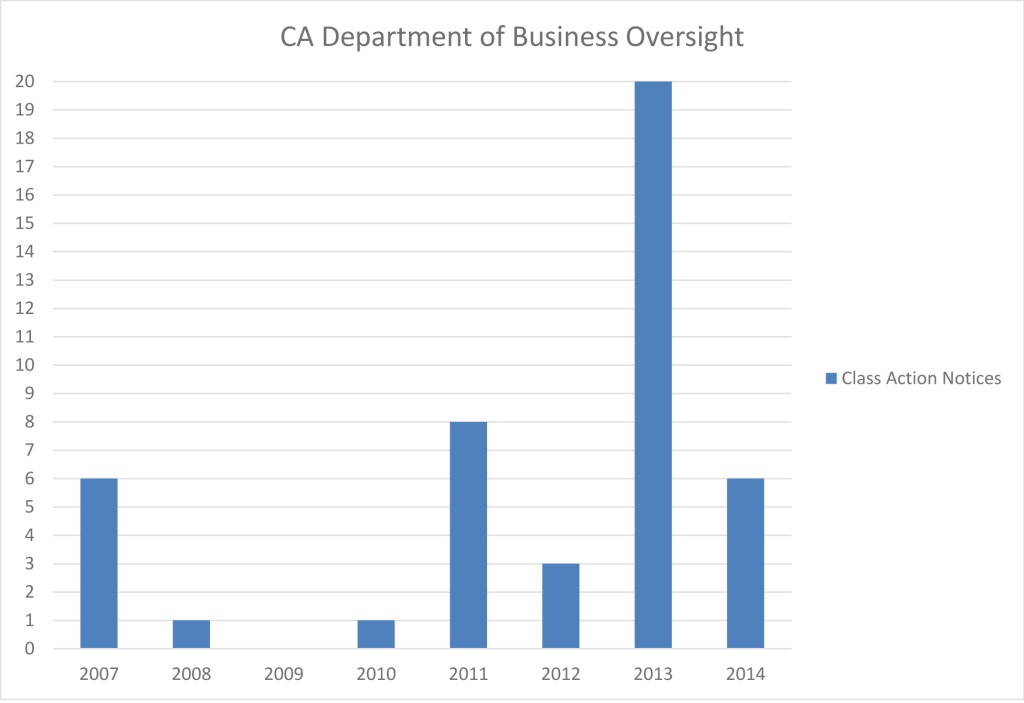On February 18 2005, Congress enacted the Class Action Fairness Act (CAFA), P.L. No. 109-2 (28 U.S.C. §§ 1332(d), 1453, and 1711 – 1715). In enacting the CAFA, Congress sought to protect consumers and investors from settlements in which plaintiffs’ attorneys received significant fees but class members received little or even less. In one (in)famous case, for example, an unfortunate class member incurred $91.33 in attorneys’ fees to recover $2.19 on the merits. Kamilewicz v. Bank of Boston Corp., 92 F.3d 506 (7th Cir. 1996).
Congress tried to address this problem by requiring, among other things, that each defendant participating in a proposed settlement serve notice on the “appropriate state official” of each state in which a class member resides and the appropriate Federal official. 28 U.S.C. § 1715(b). Rather unhelpfully, the CAFA doesn’t say what exactly the appropriate state official is to do with the notice.
In 2007, then Commissioner of Corporations Preston DuFauchard issued Release 18-G to provide guidance with respect to notifying the Department of Corporations (now known as the Department of Business Oversight). The chart below details the number of notifications received in each of the last eight years.

Interestingly, Cornerstone Research recently reported that there were 63 class action settlements nationwide in 2014 while the number of CAFA notices filed with the Department was only six.
Congress did not grant state officials any expanded authority or responsibilities, including the authority to enforce compliance with the CAFA. 28 U.S.C. § 1715(f). Indeed, it would be an interesting question of federalism if Congress had purported to do so. I have not heard that the Department has ever objected to any proposed settlement and it is questionable whether it has the authority under state law to do so even if it were so inclined.
Failure to serve the required notices has at least one consequence. Congress provided that a class member may refuse to comply with, and may choose not to be bound by, a settlement agreement or consent decree in a class action if the class member demonstrates that the required notice was not served. 28 U.S.C. § 1715(e)(1).


.png?width=100&height=100&name=corporate_law_blogs%20(1).png)